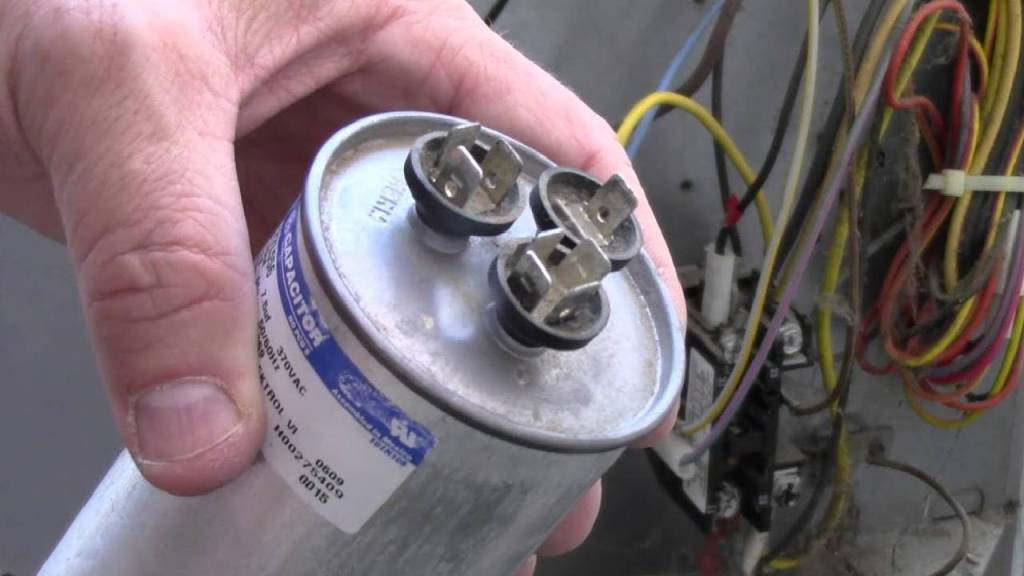In the realm of home comfort, air conditioning systems reign supreme, especially during scorching summers or humid climates. Amidst the various components that ensure the smooth functioning of an AC unit, capacitors play a pivotal role. These small yet mighty devices store and release electrical energy to kick-start the compressor and fan motors. But like any other component, AC capacitors have a finite lifespan. Therefore, understanding their longevity and how to extend it becomes crucial for homeowners seeking to optimize their cooling systems. In this article, we delve into the query that plagues many minds: “How long do AC capacitors last?” We’ll explore the life expectancy of air conditioner capacitor, factors influencing their longevity, signs of a failing capacitor, and practical tips to prolong their lifespan.
Understanding the Lifespan of AC Capacitors
AC capacitors, whether they’re start capacitors or run capacitors, typically have a lifespan ranging from 10 to 20 years under ideal conditions. However, several factors can impact their longevity:
- Usage Frequency: The more frequently an air conditioner runs, the more strain it puts on its components, including capacitors. AC units operating round the clock, especially in hot climates, might experience capacitor failure sooner than those used sparingly.
- Climate: Extreme temperatures, both hot and cold, can affect the performance and lifespan of capacitors. High temperatures can cause capacitors to overheat, leading to premature failure. Conversely, extremely cold temperatures can affect the capacitor’s ability to store and release energy efficiently.
- Voltage Fluctuations: Fluctuations in voltage can stress capacitors, leading to premature failure. Power surges, lightning strikes, or electrical issues in the home can impact the lifespan of capacitors.
- Quality of Installation: Proper installation by qualified technicians can significantly impact the lifespan of AC capacitors. Incorrect wiring or installation can subject capacitors to unnecessary stress, leading to premature failure.
- Quality of Components: The quality of capacitors used in the air conditioning system also plays a crucial role. High-quality capacitors sourced from reputable manufacturers are more likely to have a longer lifespan compared to cheaper, low-quality alternatives.
Signs of a Failing Capacitor
Identifying the early signs of a failing capacitor can prevent unexpected breakdowns and costly repairs. Here are some common indicators that your AC capacitor might be on the brink of failure:
- Intermittent Cooling: If your air conditioner’s cooling performance is inconsistent, with periods of normal operation followed by sudden drops in cooling efficiency, a failing capacitor could be the culprit.
- Unusual Sounds: Buzzing, humming, or clicking sounds emanating from the air conditioner can indicate capacitor issues. These sounds typically occur when the capacitor struggles to start the compressor or fan motor.
- Delayed Startup: A noticeable delay in the startup of the air conditioner after you’ve turned it on could signal capacitor problems. Capacitors provide the initial jolt of electricity to kick-start the compressor and fan motors. A failing capacitor might struggle to provide this initial boost, leading to delayed startup times.
- Frequent Cycling: If your air conditioner frequently turns on and off in short intervals (short cycling), it could be due to capacitor issues. Capacitors help maintain the proper voltage levels for the compressor and fan motors. When capacitors fail, the system may cycle more frequently as it attempts to compensate for the lack of electrical support.
- Visual Signs: Visually inspecting the capacitor can sometimes reveal signs of damage or failure. Look for bulging or leaking capacitors, as well as any signs of burnt or melted components.
Extending the Lifespan of AC Capacitors
While the lifespan of AC capacitors is finite, there are steps homeowners can take to prolong their longevity and minimize the risk of premature failure:
- Regular Maintenance: Scheduled maintenance by qualified HVAC technicians is essential for keeping your air conditioning system in top condition. During routine maintenance visits, technicians can inspect capacitors for signs of wear and tear, as well as test their performance to ensure optimal operation.
- Keep the Unit Clean: Dirt, dust, and debris can accumulate inside the air conditioner, potentially causing overheating and damage to components, including capacitors. Regularly clean or change air filters, and ensure that the area around the outdoor unit remains free from obstructions.
- Invest in Surge Protection: Installing surge protectors or voltage stabilizers can help safeguard your air conditioning system, including capacitors, from damage caused by power surges or fluctuations.
- Avoid Overworking the System: While it’s tempting to crank up the air conditioner during hot summer days, excessive usage can strain the system and accelerate component wear, including capacitors. Set your thermostat to a moderate temperature and use ceiling fans or strategic shading to supplement cooling.
- Replace Aging Capacitors: As capacitors approach the end of their expected lifespan, consider proactively replacing them before they fail. HVAC technicians can assess the condition of capacitors during routine maintenance visits and recommend replacement if necessary.
- Professional Installation and Repairs: When installing a new air conditioning system or replacing components, such as capacitors, rely on experienced and certified HVAC professionals. Proper installation and repairs can prevent unnecessary strain on capacitors and ensure optimal performance.
Conclusion
AC capacitors are essential components of air conditioning systems, playing a critical role in starting and maintaining the operation of compressor and fan motors. While they have a finite lifespan, understanding the factors influencing their longevity and recognizing signs of failure can help homeowners take proactive measures to extend their lifespan and minimize the risk of unexpected breakdowns. By investing in regular maintenance, practicing energy-efficient cooling habits, and seeking professional assistance when needed, homeowners can ensure their AC capacitors operate smoothly, contributing to a comfortable indoor environment for years to come.




Leave a comment